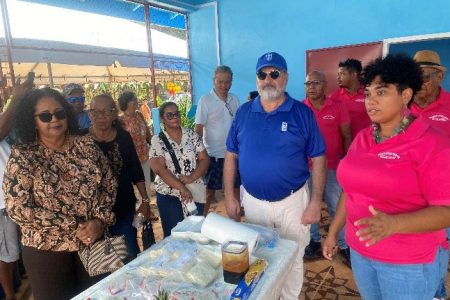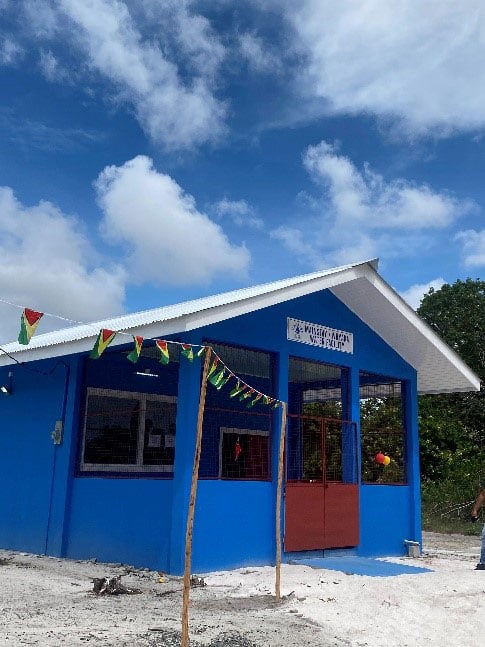Residents of Mainstay/Whyaka, Region Two, are now set to become more self-sufficient with the opening of a cassava agro-processing and water purification facility.
The milestone was marked by a ceremony yesterday morning, signalling new opportunities for economic growth and community development.
The agro-processing facility will produce garlic-flavoured cassava bread, quinches, beverages, and other cassava-based products, while the water purification facility will provide bottled water for residents and tourists. Together, these facilities are expected to significantly enhance the village’s economy and create employment opportunities.

Speaking at the ribbon-cutting ceremony, United Nations Development Programme (UNDP) Country Representative for Guyana and Suriname, Gerardo Noto, highlighted the initiative’s impact on the community.
He said that UNDP was happy to partner with the village to provide employment for persons and added that the initiative will promote training, smart agriculture, and the integration of traditional practices. He also acknowledged the active involvement of the women in the community.
Noto pointed out that apart from the facilities, the UNDP has been assisting with the establishment of information and communication technology hubs in several communities to boost technological capacity, which can be used to market local products and services.
Meanwhile Regional Chairperson, Vilma De Silva, commended the project, emphasising her passion for agriculture and tourism. She remarked that Mainstay/Whyaka is known for its tourism potential.
Member of Parliament, Yvonne Pearson, described the occasion as historic for the village. She disclosed that the project was conceptualised by the previous village council and was happy to see it realised.
“The cassava facility will process cassava bread and flour, supporting local bakeries and creating jobs. It’s a significant step toward fulfilling the village’s long-term goals,” Pearson added.
And Toshao Marsha Williams expressed pride in the initiative, highlighting its role in promoting traditional practices and enhancing the village’s tourism potential.
She noted that women in the community were already trained to produce cassava-based products, including garlic-flavoured biscuits, beverages, and casareep.
The cassava agro-processing facility was funded by the Global Environment Facility Small Grants Programme (GEF SGP) and implemented by the UNDP, while the water purification facility was financed by the Government of Guyana.





